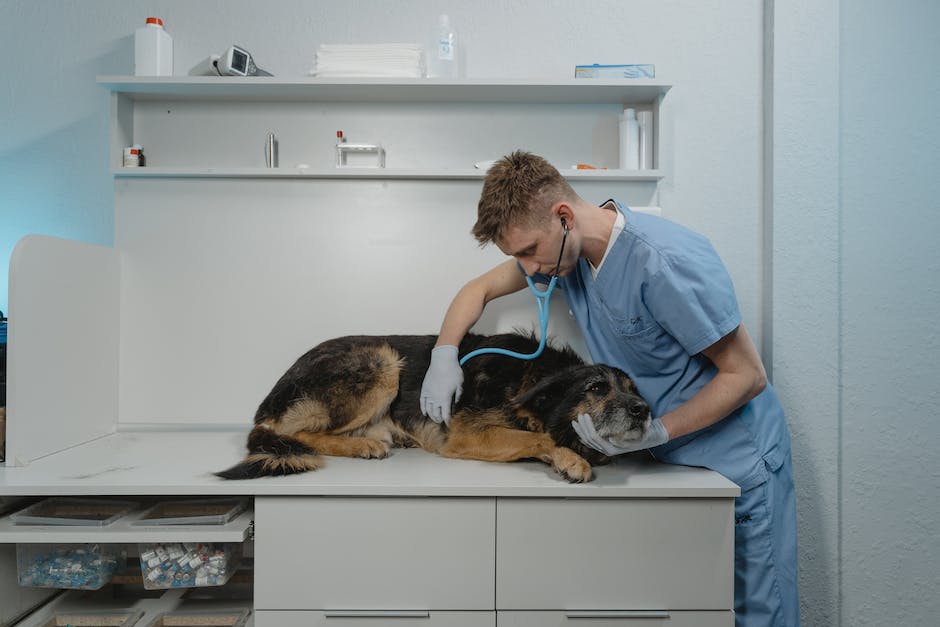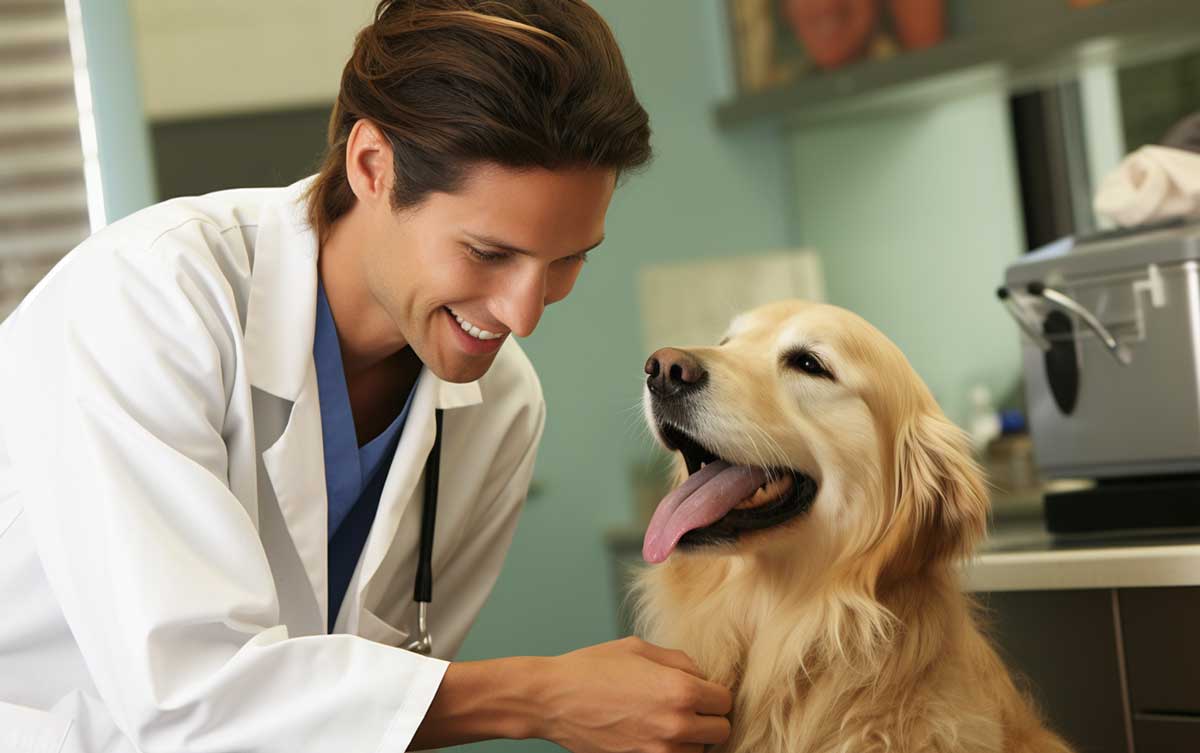When our beloved pets fall ill or get injured, an emergency vet visit becomes essential. However, many pet owners are unprepared for the unexpected "emergency vet cost" associated with such visits. This article dives into what to expect and how to handle these unforeseen expenses.
What is an Emergency Vet Visit?
An emergency vet visit is an unscheduled, immediate consultation with a veterinarian due to sudden illness, injury, or other concerning symptoms in a pet that can't wait for a regular check-up.
Common Reasons for an Emergency Vet Visit
-
Accidents such as falls or car hits: Apart from visible injuries like fractures, internal damages, bruises, or trauma can also occur, which may not be immediately evident.
-
Sudden severe illnesses like poisoning: This might be from household chemicals, certain plants, or even some human foods that are toxic to pets.
-
Bite wounds or injuries from fights: Apart from the obvious injury, there's a risk of infections or transmission of diseases.
-
Breathing difficulties: Issues with the lungs, blockages, or allergic reactions can cause this.
-
Seizures: Especially if it's the first time, a seizure is alarming and could be indicative of underlying conditions.
When to Seek Emergency Care
Pets can't communicate pain or discomfort in words, so it's up to the owner to interpret signs. If something feels off or different about your pet, it's essential to trust your instinct and seek immediate professional care. Always remember: Delaying health care can be detrimental.
Warning Signs in Pets Requiring Urgent Care
Labored breathing: Sudden changes in breathing patterns could result from foreign body obstruction to heart disease.
Pale gums: This is often a sign of decreased circulation, which can be life-threatening.
Rapid heartbeat: Abnormal heart rates can result from shock, pain, or other severe conditions.
Difficulty standing or sudden clumsiness: It might be a sign of issues ranging from orthopedic injuries to strokes.
Excessive bleeding: Profuse bleeding needs immediate attention to prevent shock.
Time of Day and Emergency Visits
Emergencies have a knack for occurring at the most inopportune moments - late at night, on weekends, or during holidays. As a pet owner, it's not just about knowing where your nearest emergency vet clinic is, but also their operating hours, so you don't lose precious time in a crisis.
Preparation for an Emergency Vet Visit
-
Keep a pet first aid kit: Stock it with essentials like gauze, saline solution, tweezers, and a digital thermometer.
-
Maintain updated medical records: In emergencies, knowing medications your pet is on, their allergies, or any pre-existing conditions can be vital for the vet.
-
Ensure safe transport: A panicked pet can be hard to control. Always have a suitable carrier, leash, or harness on hand.
How Much Does a Typical Emergency Vet Visit Cost?
When our furry friends need urgent care, the last thing we want to think about is the cost. However, it's essential to be aware and prepared. Typically, emergency vet visits can vary considerably in price, depending on several factors. While a minor ailment might only set you back around $100, severe injuries or illnesses requiring surgeries or intensive treatments can easily run into thousands of dollars.
Factors Affecting the Cost of an Emergency Veterinary Visit
-
Severity of the Condition: A simple wound or minor illness can be treated with basic first aid or medications and will be less expensive. In contrast, conditions requiring surgery, overnight hospitalization, or specialized equipment can considerably increase the bill.
-
Location of the Clinic: Often, clinics in urban areas, with higher operational costs, might charge more than those in rural settings. Additionally, clinics in affluent neighborhoods might have higher price tags due to more advanced equipment or specialized services.
-
Required Treatments or Procedures: Diagnostic procedures like X-rays, MRIs, or blood tests add to the cost. Surgeries, especially those that are complex or require specialized skills, can significantly increase the bill. Post-operative care, if needed, can also add to the costs.
-
Medication Costs: The type and duration of medications prescribed can affect the overall cost. Some treatments might require pricey medications, while others might need only basic, affordable drugs.
-
Clinic's Operational Hours: 24/7 emergency clinics might have slightly higher costs due to their extended operational hours and the need for round-the-clock staff.
-
Specialists' Involvement: If your pet's condition requires a specialist's attention, this can increase costs. Specialized veterinarians, like neurologists or oncologists, might charge higher fees due to their expertise.
-
Aftercare and Follow-up: Some conditions might require multiple follow-up visits or continued care, leading to higher overall expenses.
Emergency Vet Payment Options
Dealing with a pet emergency is already stressful enough without the added worry of how to cover the unexpected bills. Thankfully, there are several payment options available to help pet owners navigate these tough times.
Payment Plans and Credit Card Payments
-
In-house Financing: Some veterinary clinics understand the financial strain emergencies can bring and offer in-house financing. This allows pet owners to spread the cost of the bill over several months, making it more manageable.
-
Third-party Financing: Some third-party companies like CareCredit specialize in medical financing, including veterinary care. They often provide interest-free promotional periods, which can be beneficial.
-
Emergency Credit Card: Having a credit card set aside specifically for emergencies, including those for your pet, can be a lifesaver. It gives you the flexibility to pay over time, although it's crucial to be mindful of interest rates and strive to pay off the balance as quickly as possible.
Using a Pet Insurance Policy to Cover Vet Costs
Not all pet insurance policies are created equal, with significant variances in coverage. Some policies might cover routine check-ups and vaccinations, while others are tailored specifically to accidents and emergencies. As a pet owner, it's crucial to familiarize yourself with the specifics of your policy to avoid any unexpected costs or surprises.
Additionally, it's worth noting that most pet insurance operates on a reimbursement model. This setup means that, typically, you'd pay the veterinary bill upfront and then submit a claim to your insurance company. Based on your policy's coverage, you can then receive a refund for a portion or, in some cases, the entirety of the bill.
Setting Up an Emergency Fund for Your Furry Companion
-
Consistent Savings: Even small, consistent contributions to an emergency fund can accumulate over time. This dedicated savings can be a buffer against unforeseen expenses.
-
Peace of Mind: Knowing there's a financial safety net for your pet can bring peace of mind. If an emergency strikes, you can focus entirely on your pet's well-being rather than stressing about finances.
-
Banking Options: Some banks or credit unions offer special savings accounts with benefits for consistent deposits, which can be a good fit for an emergency pet fund.
Finding the Nearest Emergency Clinic
In times of pet emergencies, quick access to a reliable veterinary clinic is crucial. Knowing where to turn when your pet needs urgent care can make all the difference. Here, we'll explore how to identify the nearest emergency clinics and the burgeoning world of online veterinary consultations.
How to Locate the Nearest Emergency Clinic for Veterinary Care
-
Online Directories: In today's digital age, online resources like VetFinder and the American Veterinary Medical Association's clinic search have become go-to tools for many pet owners. With easy-to-use interfaces, they quickly connect you to emergency clinics in your vicinity based on your provided location.
-
Local Recommendations: Word of mouth remains a powerful resource. By participating in local pet-focused community groups, either online or in-person, you can tap into the collective knowledge of fellow pet owners. These forums and groups often feature discussions about personal experiences, allowing you to identify reputable and trusted emergency clinics in your area.
-
Consult Your Regular Vet: Your primary veterinarian is not just there for regular check-ups but also serves as a valuable guide in emergencies. Even if they don’t offer 24-hour emergency services, they usually have a network of trusted colleagues and clinics they can recommend. Building a strong relationship with your regular vet ensures you have a knowledgeable ally when emergencies strike.
Consulting with a Professional Veterinarian Online or Over the Phone
The rise of telehealth isn't just for humans; it's also benefitting our furry companions. Numerous platforms, such as VetChat or Ask.Vet, offer real-time consultations with professional veterinarians. These services can be invaluable when you're unsure about your pet's symptoms or when a clinic visit may be challenging due to various circumstances. An online or phone consultation can provide immediate guidance, helping you gauge the severity of your pet's condition and if there's a need for an in-person emergency visit.
Pet emergencies can be distressing, but being informed about "emergency vet cost" can make the process less daunting. By understanding when to seek care, recognizing signs of distress, and being prepared financially, you can ensure your pet receives the best care possible during their time of need.
Need food assistance? Discover the straightforward steps to access a local food pantry in our concise guide. At Gov Relations, we ensure your family's needs are met efficiently.







